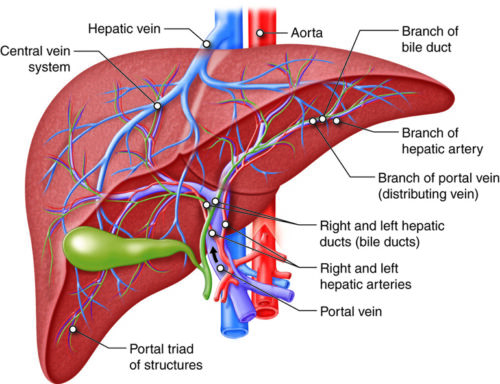Liver Damage
The liver is a vital organ responsible for numerous important functions in the human body. From metabolizing nutrients to detoxifying harmful substances, the liver plays a crucial role in maintaining overall health. However, many factors can contribute to liver damage, potentially leading to severe health complications.


Causes of Liver Damage
Liver damage can be caused by various factors, including:
- Alcohol abuse: Excessive alcohol consumption over a prolonged period can lead to alcoholic liver disease.
- Viral infections: Hepatitis viruses, such as Hepatitis B and C, can cause inflammation and damage to the liver.
- Obesity: Excess body weight can contribute to non-alcoholic fatty liver disease (NAFLD) and, in severe cases, progress to non-alcoholic steatohepatitis (NASH).
- Drug abuse: Certain drugs and medications can have a toxic effect on the liver if used improperly or in high doses.
- Autoimmune diseases: Conditions like autoimmune hepatitis can cause the immune system to attack and damage liver cells.
- Genetic diseases: Inherited conditions, like hemochromatosis or Wilson’s disease, can disrupt normal liver function.
Symptoms and Complications
Liver damage often progresses silently and may not cause noticeable symptoms until significant damage has occurred. However, some common signs and complications associated with liver damage include:
- Jaundice (yellowing of the skin and eyes)
- Abdominal pain and swelling
- Unexplained weight loss
- Dark urine and pale stools
- Fatigue and weakness
- Easy bruising and bleeding
- Fluid retention
- Increased sensitivity to medications
Prevention and Treatment
Preventing liver damage involves making healthy lifestyle choices:
- Avoid excessive alcohol consumption or seek professional help if needed.
- Practice safe sex and take appropriate precautions to avoid hepatitis infections.
- Maintain a healthy weight through balanced eating and regular physical activity.
- Use medications responsibly and follow prescribed dosage instructions.
- Get vaccinated against hepatitis A and B viruses.
Treatment options for liver damage depend on the underlying cause and severity of the condition. Medical interventions may include medication to manage symptoms, lifestyle changes, and, in severe cases, liver transplantation.
Regular monitoring, routine check-ups, and early intervention can help detect liver damage and prevent further complications.
Remember, a healthy liver is essential for overall well-being. Take care of your liver, and it will take care of you!
Sources:
Mayo Clinic,
Healthline,
WebMD